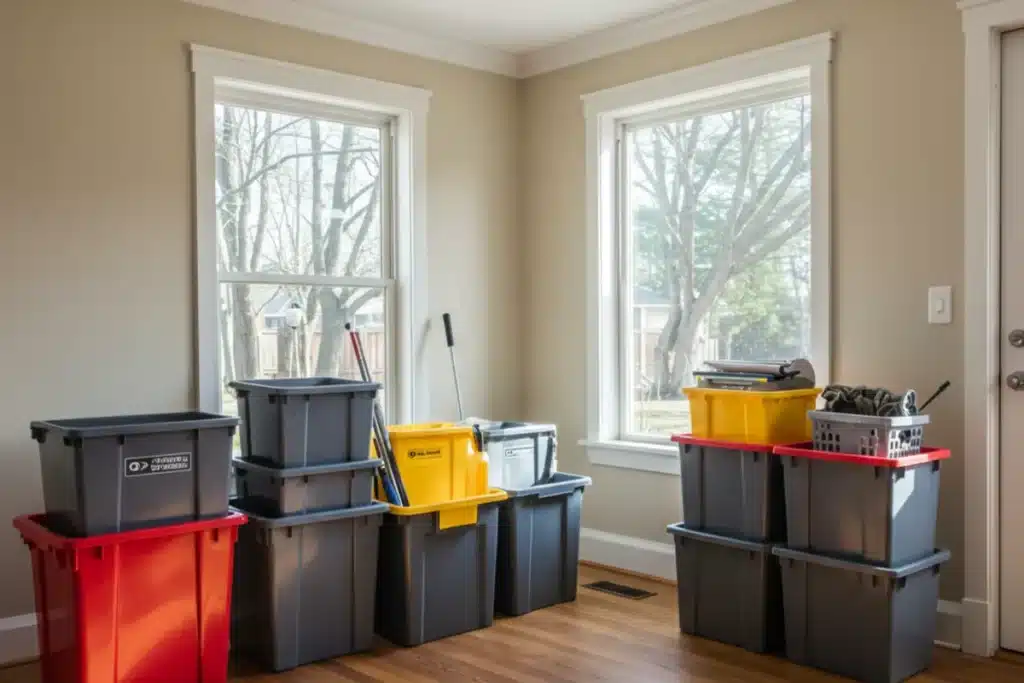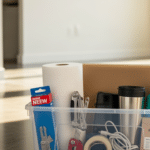Making Home Transformations Easier: Why Cleanup Matters
Home renovations offer the promise of a refreshed and personalized living space. Whether you’re updating a kitchen, expanding a living area, or simply modernizing your décor, the journey from “before” to “after” can be truly exhilarating. However, amid the thrill of watching your vision come to life, it’s easy to underestimate the disruption that dust, debris, and clutter can bring into your daily routine. A disorganized or neglected cleanup process can quickly overshadow the excitement, turning your dream project into a source of ongoing stress.
A tidy renovation site isn’t just about appearances—it plays a significant role in maintaining safety and comfort. Piles of scrap materials, leftover packaging, and discarded fixtures can create hazards for your family or contractors, potentially leading to accidents or injuries. Moreover, when the mess accumulates, it becomes harder to track progress, locate tools, or simply enjoy your home during and after the project.
By making cleanup a central part of your renovation strategy, you create a pathway to enjoy both the process and the results. Prioritizing cleanliness ensures that the transformative aspect of your renovation remains front and center, unclouded by unnecessary chaos. Ultimately, treating cleanup with the same importance as other renovation decisions helps you achieve a smoother, more rewarding home transformation.
Start with a Cleanup Plan: Setting Yourself Up for Success
A successful renovation hinges not just on your vision or choice of materials, but also on how well you anticipate and manage the inevitable mess. Just as you would carefully select tiles or paint colors, dedicating time upfront to plan your cleanup strategy sets the stage for a smoother project. Start by reviewing your renovation scope and listing everything that may need to be discarded or relocated, from old appliances and fixtures to packaging and scrap materials.
Organizing your cleanup effort before any demolition or installation begins can make all the difference. Set up regular cleaning intervals—daily or weekly, depending on the project’s scale—to prevent debris from piling up. This routine not only maintains order but also creates a safer environment for everyone involved.
Designating specific zones for waste collection is another effective tactic. Place sturdy bins or tarps in accessible spots where workers can easily discard debris. This keeps your work area clear and minimizes the risk of accidents. Don’t forget to plan for the removal of bulky items like cabinets, doors, or flooring, which may require special handling.
By thinking through cleanup logistics early, you’ll avoid last-minute scrambles and keep your renovation timeline on track. A proactive approach ensures that when the work is done, you can immediately enjoy your revitalized space—without the shadow of lingering mess.
Anticipating Debris: How to Organize and Manage Waste
Renovation projects can generate surprising amounts and types of waste. From broken tiles and splintered wood to old appliances and leftover paint cans, the debris can accumulate quickly. Anticipating the specific kinds of waste your project will produce allows you to organize and manage disposal efficiently and responsibly.
Start by sorting debris into categories: recyclable materials (such as metal, glass, and certain plastics), reusable items (like undamaged fixtures or hardware), and landfill waste (non-recyclable construction debris). Setting up clearly labeled bins or bags for each category streamlines the cleanup process for both you and anyone working on the project. This approach also makes it easier to identify items that could be donated or repurposed, reducing what ends up in the landfill.
Don’t let waste linger on-site—schedule regular removals to prevent clutter and hazards from interfering with the renovation. Removing debris in stages is safer and less overwhelming than tackling a massive pile at the end.
Whenever possible, opt for eco-friendly disposal methods. Many cities, including Vancouver, offer programs for recycling construction materials, and some organizations accept donations of gently used building supplies or furniture. By planning waste management with sustainability in mind, you not only keep your renovation tidy but also contribute to a healthier environment.
Professional Solutions for Junk and Construction Debris Removal
Even with the best planning, some renovation cleanup tasks are simply too large or complex to handle on your own. Professional junk removal services are an invaluable resource when it comes to efficiently clearing out construction debris, old appliances, unwanted furniture, and yard waste. These specialists are equipped to handle the heavy lifting, transportation, and responsible disposal of a wide range of items, saving you significant time and physical effort.
Many services offer flexible scheduling, including same-day or next-day pickups, making it easy to remove debris right when you need it gone. Professional teams are typically licensed and insured, which means your property and belongings are protected throughout the process. They also have the expertise to separate recyclable materials from landfill waste, ensuring that your renovation’s environmental footprint is minimized.
In addition to construction debris, professional crews can assist with appliance removal, furniture removal, and yard waste disposal—tasks that often require specialized equipment or vehicles. By outsourcing these aspects of your cleanup, you can focus on the finishing touches of your renovation, confident that the mess is being handled efficiently and responsibly.
Whether you’re managing a major remodel or a simple refresh, professional junk removal transforms a potentially overwhelming task into a seamless step toward enjoying your improved space.
Enjoy Your Newly Renovated Space: The Benefits of a Thoughtful Cleanup Strategy
Completing a renovation is a moment worth celebrating, but the real reward comes from stepping into a space that’s as clean and inviting as it is beautifully transformed. A thoughtful cleanup strategy ensures you’re not left wrestling with piles of debris or lingering dust—you can immediately enjoy the improvements you’ve worked so hard to achieve.
Managing cleanup throughout the project reduces stress for everyone involved. Rather than feeling overwhelmed by a post-renovation mess, you’ll have peace of mind knowing each stage was handled with care. This proactive approach means you can move furniture back in, invite guests over, or open your business doors as soon as the work is done, all without delay.
Beyond aesthetics, effective cleanup is essential for the safety and health of your household or workplace. Removing sharp objects, dust, and hazardous materials eliminates potential risks, creating a more comfortable environment for family, friends, or clients.
Lastly, by choosing eco-friendly disposal options and recycling whenever possible, your renovation project has a positive impact on both your immediate community and the broader environment. Taking cleanup seriously ensures that your beautiful new space is matched by a responsible, sustainable approach—one that truly reflects the care you’ve invested in your home or business.





